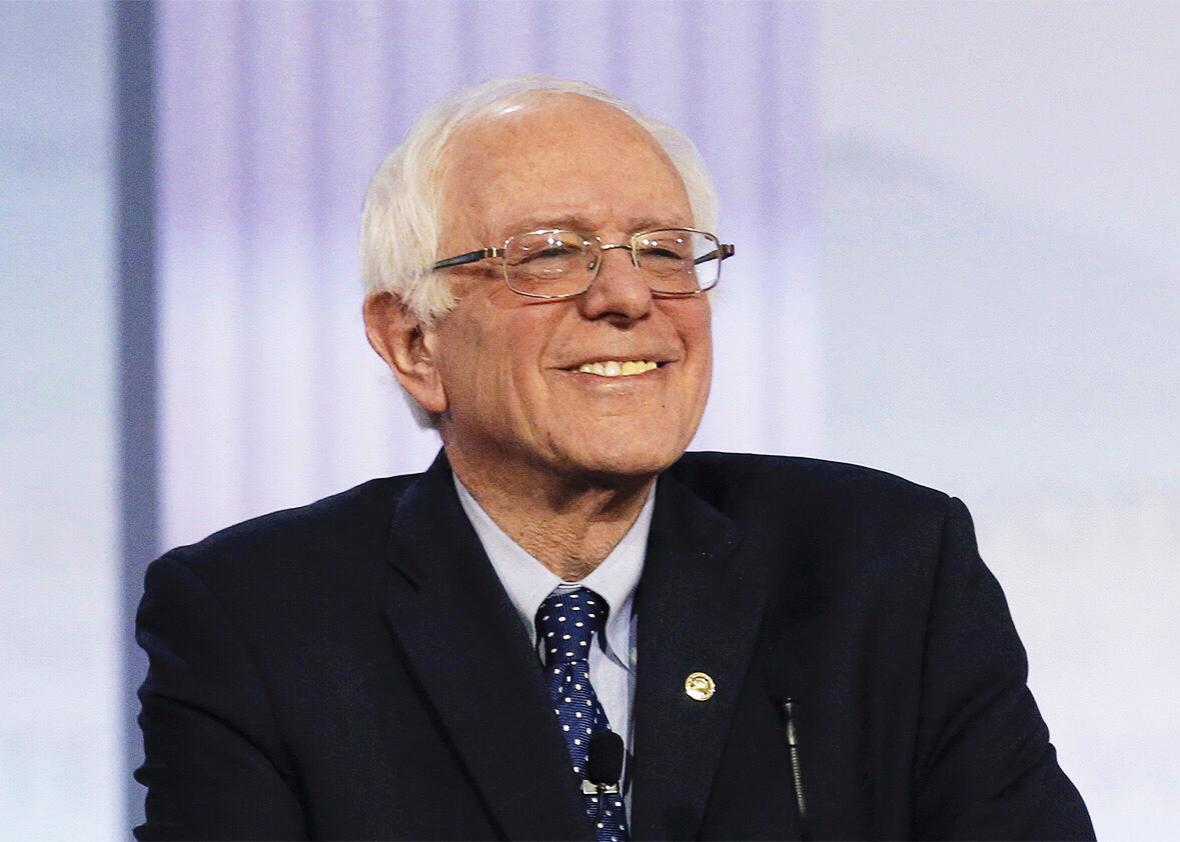Fresh off a race-altering and historically large victory in New Hampshire, Bernie Sanders arrived at the Democratic debate on Thursday with all the momentum. He left with a bit more, but barely.
There was no clear winner on the PBS stage. There were no major gaffes, or clear-cut knockout blows. Both Sanders and Hillary Clinton had their moments, and their (minor) mistakes. But most of their exchanges centered on posture—Bernie the idealist; Hillary the pragmatist—not policy. Sanders seized every opportunity he could to deliver his secular sermon on income inequality. Clinton never missed a chance to tout her experience and policy knowledge.
All in all, it wasn’t the type of nuanced debate we’ve seen from these two in the past. When they weren’t talking past each other, as they did early in the debate on the subject of health care, they were talking in the same direction, as they did on the subject of systematic racism. Based on what happened in the past two contests—the tiniest of victories for Clinton in Iowa and a much larger one for the surprise underdog challenger Sanders in New Hampshire—a tie favors Sanders, who gets to continue to ride the narrative of the anti-establishment figure who is battling against one of the most powerful people in the Democratic Party and somehow holding his own. Based on what much of the chattering class sees when they look to the next two contests, meanwhile, a tie favors Clinton, who still holds key polling and structural advantages that will not change as long as the status quo remains. Still, if I had to call a winner based only on what I saw on stage and what matters for the current moment, I’d give it to Bernie by the wispiest of gray hairs.
Clinton had a few good shots late in the debate on Sanders for not being supportive enough of President Barack Obama, still a popular figure in the Democratic Party, but there was no one killer blow. Sanders, meanwhile, had a memorable line slamming Clinton’s past admiration for former Secretary of State Henry Kissinger, whom Sanders basically described as a war criminal whose actions led to one of the worst genocides in history.
My tie break, though, came not from a candidate’s answer but from a question asked to Clinton by moderator Judy Woodruff toward the middle of the debate:*
Secretary Clinton, your campaign has recently ramped up criticism of Senator Sanders for attending Democratic Party fundraisers from which you say he benefited. But nearly half of your financial sector donations appear to come from just two wealthy financiers, George Soros and Donald Sussman, for a total of about $10 million. You have said that there is no quid pro quo involved. But is that also true of the donations that wealthy Republicans give to Republican candidates, contributors including the Koch brothers?
Hillary responded first with the (absurd!) claim that she had nothing to do with the super PAC in question and then, shortly after, went from touting her own small-dollar network to hyping her opponent’s. “I am proud of Senator Sanders, and his supporters,” she said. “I think it’s great that, you know, Senator Sanders, President Obama, and I have more donors than any three people who have ever run.” The answer was bad—though nowhere near her worst on the topic—and allowed Sanders to make his own case. But it was the question that packed the biggest punch. Millions of voters had just watched as a candidate who is promising to reform our campaign finance system dodged a question that made an implied comparison of her donors to the Koch brothers. That’s hardly an image any candidate wants, let alone one who is running against an opponent who promises to break Wall Street’s hold on Washington. For his part, Sanders capitalized on that tough question for Clinton with a series of snark bombs:
Let’s not insult the intelligence of the American people. People aren’t dumb. “Why In god’s name does Wall Street make huge campaign contributions?” I guess just for the fun of it. They want to throw money around.
After nearly a year of campaigning—and after six debates—that moment is unlikely to significantly move the needle one way or the other. Nonetheless, it was a stark reminder that Sanders couldn’t have been handed a better candidate to challenge with his promise to upend the system.
Read more of Slate’s coverage of the 2016 campaign.
*Correction, Feb. 12, 2016: This post originally stated that Gwen Ifill was the moderator questioning Clinton. It was Ifill’s co-moderator, Judy Woodruff.
